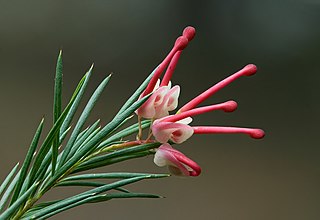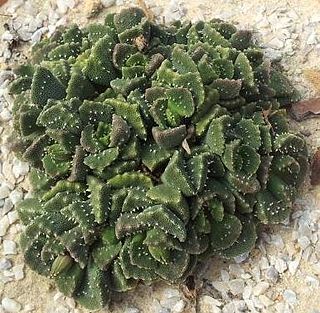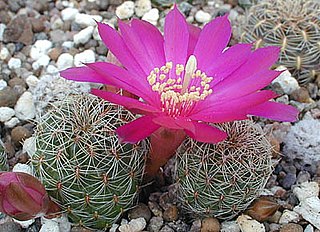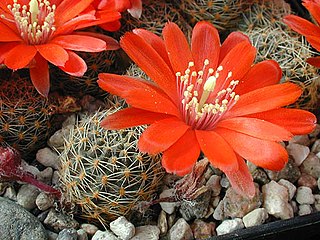
The Royal Horticultural Society (RHS), founded in 1804 as the Horticultural Society of London, is the UK's leading gardening charity.

Iris is a genus of 260–300 species of flowering plants with showy flowers. It takes its name from the Greek word for a rainbow, which is also the name for the Greek goddess of the rainbow, Iris. Some authors state that the name refers to the wide variety of flower colors found among the many species. As well as being the scientific name, iris is also widely used as a common name for all Iris species, as well as some belonging to other closely related genera. A common name for some species is 'flags', while the plants of the subgenus Scorpiris are widely known as 'junos', particularly in horticulture. It is a popular garden flower.

Horticulture is the art of cultivating plants in gardens to produce food and medicinal ingredients, or for comfort and ornamental purposes. Horticulturists are agriculturists who grow flowers, fruits and nuts, vegetables and herbs, as well as ornamental trees and lawns.

John Lindley FRS was an English botanist, gardener and orchidologist.

The Award of Garden Merit (AGM) is a long-established annual award for plants by the British Royal Horticultural Society (RHS). It is based on assessment of the plants' performance under UK growing conditions.

Grevillea rosmarinifolia, the rosemary grevillea, is a plant of the family Proteaceae.

Lavandula angustifolia, formerly L. officinalis, is a flowering plant in the family Lamiaceae, native to the Mediterranean. Its common names include lavender, true lavender or English lavender ; also garden lavender, common lavender, and narrow-leaved lavender.

Juniperus squamata, the flaky juniper or Himalayan juniper, is a species of coniferous shrub in the cypress family Cupressaceae, native to the Himalayas and China
The Victoria Medal of Honour (VMH) is awarded to British horticulturists resident in the United Kingdom whom the Royal Horticultural Society Council considers deserving of special honour by the Society.

Aloinopsis is a genus of ice plants from South Africa.

Chaenomeles speciosa, the flowering quince, Chinese quince, or Japanese quince, is a thorny deciduous or semi-evergreen shrub native to eastern Asia. It is taller than another commonly cultivated species, C. japonica, usually growing to about 2 m. The flowers are usually red, but may be white or pink. The fruit is a fragrant but hard pome that resembles a quince.

Symphyotrichum ericoides, known as white heath aster, frost aster, or heath aster, is a species of flowering plant in the family Asteraceae native to much of central and eastern North America. It has been introduced to parts of Europe and western Asia.

Allium cristophii, the Persian onion or star of Persia, is a species of flowering plant in the family Amaryllidaceae, native to Iran, Turkey, and Turkmenistan, though grown as an ornamental bulbous plant in many parts of the world. It may be sold under the synonym of Allium albopilosum.

Eriocapitella hupehensis, a species of flowering plant in the buttercup family Ranunculaceae, is native to Asia. The specific epithet hupehensis, which means "from Hupeh province, China", refers to a region where the species is known to occur. In Chinese, it is called dǎ pò wǎn huā huā (打破碗花花), which means "broken bowl flower".

Camellia × williamsii is a cultivar group of hybrid evergreen shrubs that are derived from a crossing of Camellia saluenensis with Camellia japonica. It was originally bred in 1923 at Caerhays Castle in Cornwall by John Charles Williams.

Roderick Leon Bieleski was a New Zealand plant physiologist. As a botanist and horticulturist, his research focussed on understanding the factors that affected the behaviour of plants, in particular horticultural crops. His work had practical relevance to farmers and orchardists in building their understanding of these factors and taking account of them while making a living from growing and harvesting plants. He received many honours and awards, culminating in being appointed Member of the New Zealand Order of Merit (MNZM) in 2010.

Rebutia canigueralii is a species of cactus in the genus Rebutia, native to Bolivia. It has gained the Royal Horticultural Society's Award of Garden Merit.

Rebutia pygmaea is a species of cactus in the genus Rebutia, native to Bolivia and northwest Argentina. It has gained the Royal Horticultural Society's Award of Garden Merit.

Rebutia steinbachii, called Steinbach's crown cactus, is a species of cactus in the genus Rebutia, native to Bolivia. It has gained the Royal Horticultural Society's Award of Garden Merit.

Eriocapitella × hybrida is a hybrid of flowering plants in the buttercup family Ranunculaceae. The parents of the hybrid are E. japonica and E. vitifolia. Cultivars of the hybrid are commonly known as Japanese anemone hybrids.



















